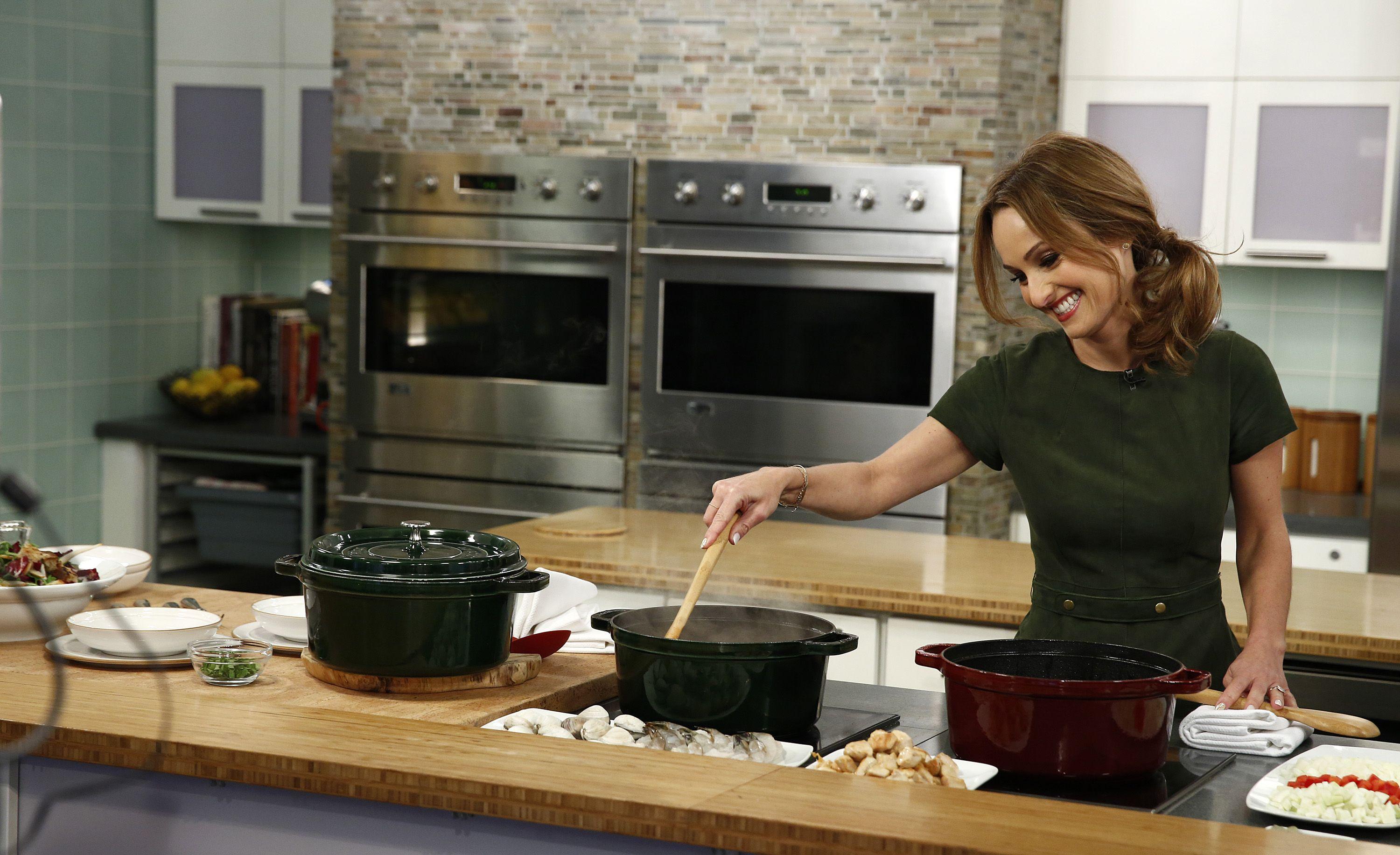With decades of perfecting Italian recipes under her belt, renowned chef, author, and television personality Giada De Laurentiis has plenty of advice to dish out. No detail goes unnoticed in any of her original recipes, and every ingredient she adds elevates ordinary flavors to extraordinary.
Giada's lifestyle and e-commerce platform, Giadzy, and array of cooking shows are an inspiration for anyone looking to up their chef game. But there's one step in most recipes that Giada sees people missing, and she wants you to know all about it.
We spoke with the culinary pro about the one mistake home cooks make over and over, and it's a controversial one.
Salt or No Salt?
According to Giada, no one is seasoning their pasta water enough.
"I think people struggle with cooking pasta properly," Giada says. "They don't season the water enough before they add the pasta to it. Everybody's afraid they'll oversalt something; we've been made afraid of eating salt."
Instead of a dash, Giada encourages you to be generous with the salt. She notes that people often don't consider tasting the water since it's boiling, but with a spoon and some patience, you can conduct a taste test.
Related
How Much Is Just Enough?
In a Giadzy article, she advised adding more salt than you think is enough. Specifically, around 1 Tbsp. for every 3 quarts of water. Following this ratio, if you're working with a larger, 12-quart pot, add 1/4 cup of salt. The salted water rehydrates the dried pasta, according to the article, enhancing its natural flavor.
Season First, Enjoy Later
"Salt is so important—the mineral of salt itself is so important in our bodies," Giada says. "And I'm always telling people to add more salt than you think you need in the water for that pasta, because that's the first time you flavor the pasta. Otherwise, you find yourself adding a lot of fat and cheese to finish it off. It's a very important step to having great-tasting pasta."
If you taste the water and it's saltier than you'd like, don't worry. Simply add more water to even out your heavy hand, and keep boiling the water. Salt can be added before or after the water boils; make sure to sprinkle it in before adding the pasta.
Save that pasta water! Set aside about a cup of the pasta water after cooking, and use it when making your sauce. Then, add it slowly to the pan where you're tossing your sauce and pasta. This will thicken the sauce and help the sauce absorb into the pasta.



